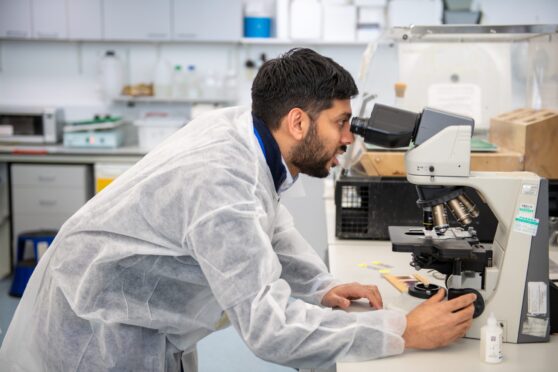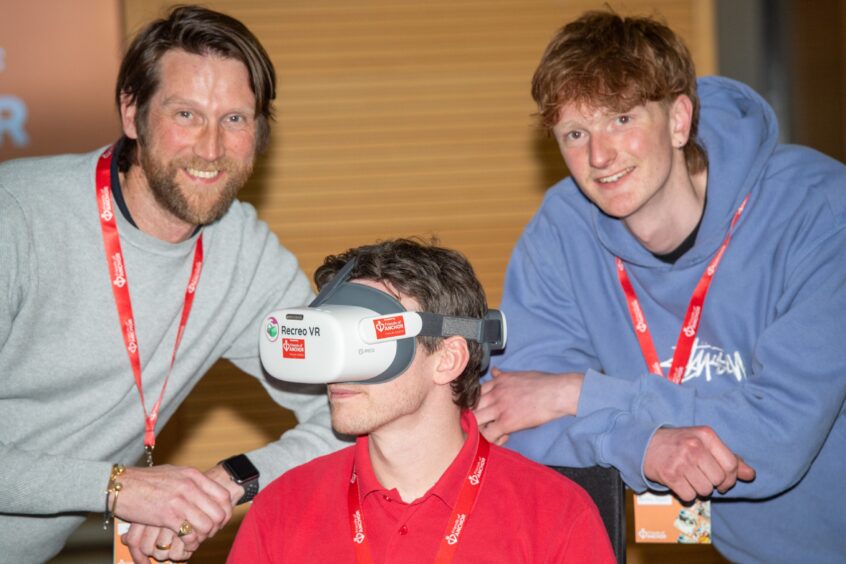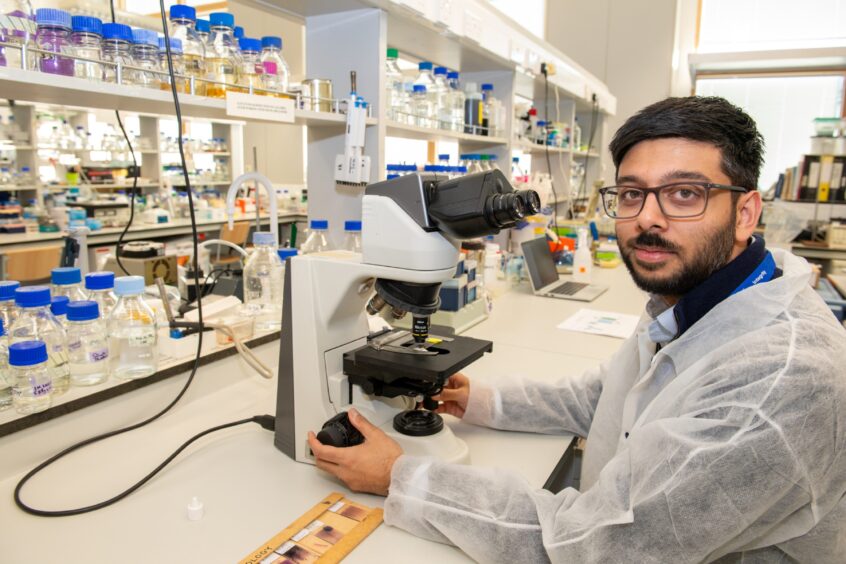For cancer patients in the north-east, the Anchor Unit has become an integral part of life.
Officially known as the Aberdeen and North Centre for Haematology, Oncology, and Radiotherapy, it’s a collective of specialised wards and clinics within Aberdeen Royal Infirmary, supported by charity Friend of ANCHOR (FoA).
While the front-facing support the unit and charity provides is clear to see, the essential behind-the-scenes work they pursue in cancer research must feel like an enigma to some.
So today, supporters of FoA were given a behind-the-scenes look at how their efforts are transforming cancer care in the north-east.
The doors were thrown open at the Institute of Medical Sciences and the Rowett Institute, offering people the chance to participate in lab tours and learn more about how their support is going towards research and equipment.
The Press and Journal went along to learn more, speaking with those who are benefitting from ground-breaking research.
The support that Friends of ANCHOR gives to patients
One such individual is Murray Jamieson from Aberdeen, a cancer patient who underwent both chemotherapy and radiotherapy. He found out he was in remission just three weeks ago.
He discovered the charity during his time in the hospital and said he found the opportunity to witness the research first-hand “mind-blowing”.
“Today’s been an eye-opener in the best possible way,” he said. “I’ve gained a deeper understanding of the effort behind treatments and why it sometimes takes longer.
“Seeing the thoroughness and attention to detail in the process is incredibly reassuring.”
For Mr Jamieson and many others, charities like FoA provide not only essential support but also a sense of community during what can often feel like an incredibly lonely journey.
“When you’re going through cancer, it can feel isolating. But the connections I’ve made with others, especially the amazing volunteers in their red t-shirts, have been unbelievable,” he said.
“I even had a chance to see one of my wonderful consultants, Dr Abhi Mathur, earlier today. It’s truly uplifting to be surrounded by such friendly faces when you’re about to hear life-changing news.”
Dad and son fundraiser to bring VR headset to hospital
Baillie Dryden – now 21 – was 18 when he became unwell after his first booster vaccine.
He ended up with a blood clot and was in hospital for around two-and-a-half weeks.
His dad, Mark, said that due to the good work by the hospital and the haematology department, they were able to figure out what was wrong quickly.
While Baillie was on the ward, they got to know more about FoA.
“Once home we decided we were going to try and do something to make people’s experiences a bit better,” said Mark.
The 48-year-old explained how the pair, along with friends, have been fundraising since, raising well over £15,000.
They helped to buy a Virtual Reality (VR) headset for the ward, to provide patients with a brief escape from the confines of the hospital room.
“It sounds like it’s been a big success and we’ve heard some beautiful stories today. It’s really rewarding to see we’ve made some sort of difference,” said Mark.
“They’re trying to find some more different VR experiences for people, including trying to make their own.”
Baillie added: “They want to do ones around Aberdeen so that people can feel at home whilst being in the wards, which I think is a great idea.”
The research that Friends of ANCHOR supports
Among the tours was one led by haematology registrar Dr Mathur, who shared how FoA’s funded research is developing medicines to train the immune system and white blood cells to ‘eat’ cancer.
As well as supporting this research, the charity is covering the costs of Dr Mathur’s three-year PhD.
Dr Mathur said: “Not all cancer treatments work for everyone. Around a third of patients don’t respond to frontline treatment. We are developing new immunotherapies to try and help tackle the issue and we need the funding to carry out the basic ground research.
“I’m grateful for everything that FoA has done for me and they do to support patients. The emotional toll of cancer can’t be underestimated so the work they do is incredible.”





Conversation